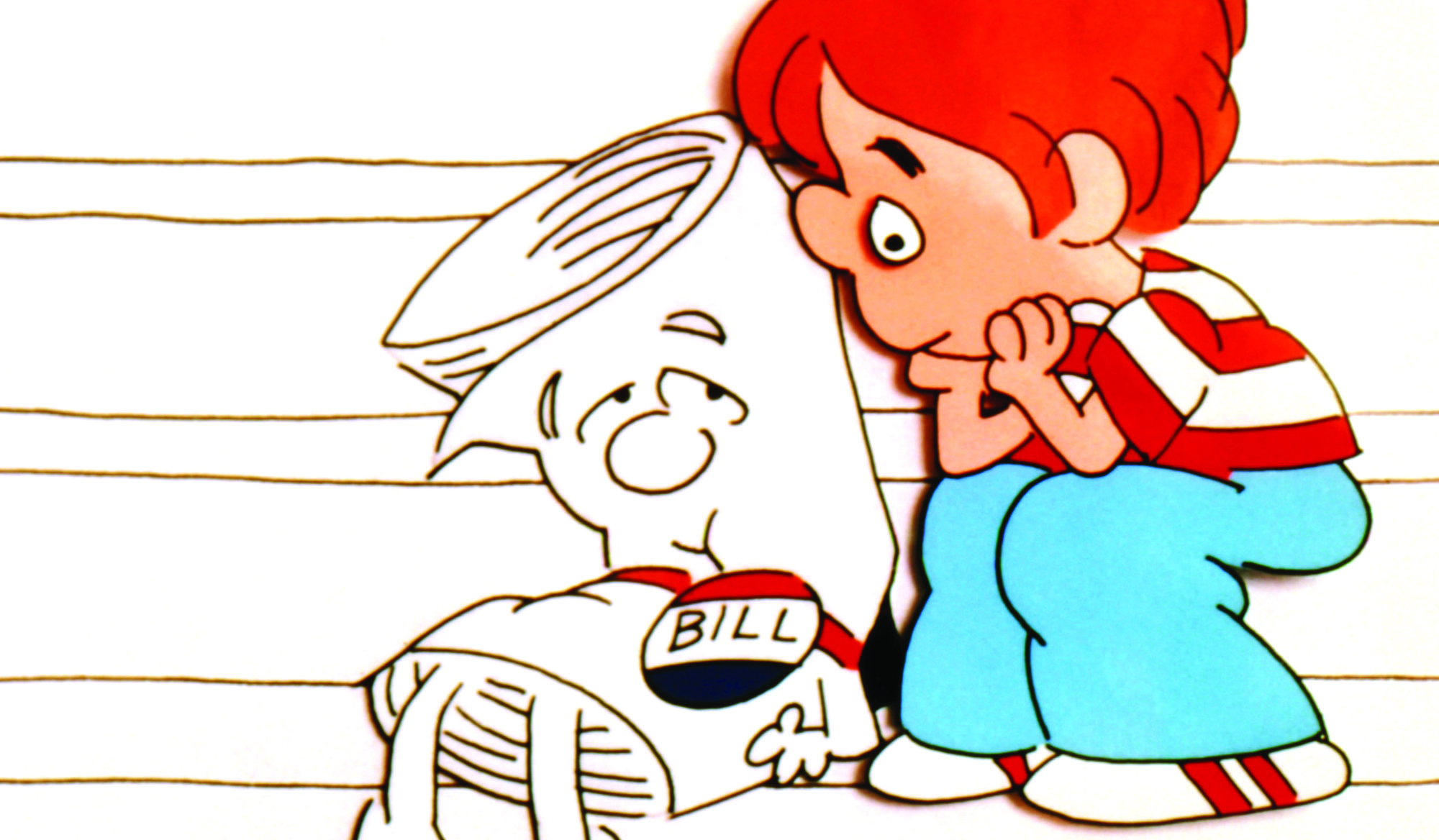
“It’s a long, long wait while I’m sitting in committee”: Braden Hajer, College Class of 2025, watched what was once just a bill, only a bill, become the nation’s first media literacy education law. (Image courtesy Everett Collection)
Illinois has a new media literacy law—by a high schooler, for high schoolers.
In July 2021 Illinois governor J. B. Pritzker signed a law requiring high schools in the state to offer one unit of media literacy education. House Bill 234 became the first law of its kind in the nation, and it exists in no small part because, as a senior at Naperville Central High School in Naperville, Illinois, Braden Hajer didn’t want to take Advanced Placement Literature.
Hajer, College Class of 2025, learned he could fulfill the same requirement by taking something called Humanities Capstone, a semester-long course in which students study and take action on a socially relevant issue. That sounded interesting to Hajer—so it was goodbye AP Lit, hello Capstone.
Deciding on a research topic didn’t take long. “I have seen firsthand what misinformation can do,” Hajer says. Early in high school, he watched with dismay as a friend disappeared down a rabbit hole of disturbing online conspiracy theories. “Thankfully,” Hajer says, “he pulled himself out, but that was a rough few years.”
The experience made Hajer realize that his own side of the street wasn’t spotless either. “I’ve caught myself sharing articles without really reading much past the headline,” he admits. Despite the perception that his generation knows everything there is to know about the internet, when it comes to the perils of misinformation, “nobody’s immune, right?”
Initially Hajer’s research project focused on the history of misinformation—which was, he discovered, a lengthy one. “We’ve had misinformation for a long time, … and it sure isn’t going anywhere,” he says. How, he wondered, do you combat a problem that stubborn?
The crossroads at which Hajer found himself is common for Capstone students, says Naperville Central social studies teacher Seth Brady, AM’09, who leads the class. Once students have understood a problem, there’s often “a realization that problems are systems,” he says. As a teacher, he encourages students to think pragmatically about how they might, with the time and resources available to them, work to dismantle or improve harmful systems. “What’s the most change you can hope to effect?” he asks.
To Hajer, improving media literacy education seemed like an achievable way to address online misinformation. So he and Brady started researching what other states had done (“not too much, it turned out”) and whether anyone in Illinois had made efforts to implement media literacy classes. He found a 2019 bill introduced by state representative Elizabeth Hernandez (D-Cicero) that had stalled; in January 2021, she’d introduced another media literacy bill.
With Brady’s guidance, Hajer began revising Hernandez’s proposed legislation. The original bill took a soft approach, stating that school districts “may” teach media literacy; Hajer wanted a mandate, on the theory that “no school is going to respond to a ‘may’ bill—so, first step, let’s turn that ‘may’ into a ‘shall.’” He also added more specific provisions about the goals of the media literacy unit, such as the ability to identify misinformation and evaluate the trustworthiness of news outlets and platforms.
Hajer emailed several subject matter experts to review the draft of his proposed legislation. Two—Bill Adair, the founder of PolitiFact, and Peter Adams, AM’04, of the News Literacy Project—responded with feedback.
Their input gave Hajer confidence in the bill, so he sent it along to Hernandez’s office, not sure what would happen next. In March 2021, the representative introduced a slightly revised version of the text he’d sent—an exciting milestone, but, Hajer knew, just the beginning of a long road.
As it happened, his teacher had firsthand experience navigating the Illinois legislative process. Capstone is part of a program called Illinois Global Scholar; Brady had been instrumental in the passage of a law that created a Global Scholar Certification for state high schools.
He shared a few tips with his student. Don’t email legislators—call instead. Cast a wide net when looking for supporters. Craft a one-minute elevator pitch and a one-page document explaining the legislation.
Armed with Brady’s insights, Hajer met with legislators to build support for the bill and testified before the House Education Committee.
Ultimately, the bill passed in the flurry of legislation that typically comes at the end of the spring legislative session. (Like high school students, state legislators are deadline driven.) Pritzker signed the bill over the summer—no ceremonial pens here, just routine government work.
Hajer attributes the bill’s success to a few things, starting with a “healthy dose of luck, of course.” Timing also helped: the January 6 insurrection at the US Capitol took place two weeks before Hernandez introduced the legislation, highlighting the dangers of online radicalization. And he suspects his involvement didn’t hurt either: “The ‘high school student trying to pass a bill’ story is really good optics.”
Both teacher and student are proud of what they accomplished together. “It is so much more enjoyable to see a student succeed in this than to succeed yourself,” Brady says.
Hajer, who is planning to major in media arts and design at UChicago, continues to advocate for the young law. “The funniest criticism I heard was, do high school students even want this?”
Well, he says, “at least one high school student did. … It’s about making baby steps to a healthier society.”
